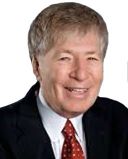Leadership
Are You a Superboss? If Not, Become One.
Do you know how to find and develop talent? Superbosses do!
Posted February 9, 2016
Do you have a Superboss? That's the term that Sydney Finkelstein, The Steven Roth Professor of Management and Director of the Leadership Center at the Tuck School of Business at Dartmouth College and author of Superbosses (Portfolio/Penguin, February 2016) uses to describe a key but often overlooked essential of effective leaders and stellar organizations: talent development.
Take a minute or five to reflect on how well your boss develops your talents and spend more time on thinking if and how you develop the talent of those you manage. If you are like most bosses, the answer is not very well.
Recently, I had the opportunity to speak with Professor Finkelstein and get a further glimpse into his thinking. Here are some of his thoughts.
HW: There are hundreds of books, seminars, speakers, and business school programs on leadership so why aren't there more Superbosses?
Professor Finkelstein: The truth is that there are many Superbosses, though not through much help from the leadership industry. The problem is that while every organization considers talent their #1 priority, they keep going back to the same solutions that just have not worked in the past. The superboss playbook offers new ideas, hiding in plain sight, that come directly from those leaders who have helped spawn generations of talent in their industries. When you know where to look, you can find them. Who wouldn’t want that?
HW: How much does personality influence being a Superboss?
Professor Finkelstein: Superbosses are very different in temperament, but they do share some common personality-related attributes. They are very competitive, always looking for an edge. It’s hard to get much more competitive in mindset than superbosses like Larry Ellison, Ralph Lauren, and Jay Chiat.
Superbosses are also fearless, both in their personal and work life. Norman Brinker was repeatedly injured playing polo and other sports, but kept going back for more. This fearlessness plays a direct role in something all superbosses bring to the table – an uncompromising vision of what their world should look like. And it’s this vision that drives so many people to want to sign on to be part of it.
HW: How can an employee help his or her boss become a Superboss?
Professor Finkelstein: No one can become a Superboss unless they really want it. How you select, manage, and leverage talent all must change. While I won’t say it’s easy to make the switch, because you’ve got be willing to try many new things that you may not have done before, every aspect of the Superboss playbook can be learned.
HW: Can employees help their boss get there?
Professor Finkelstein: Yes. Give your boss a copy of the book! Superbosses set a high aspiration for what can be accomplished, but so often we just walk through our jobs without even knowing our own potential.
HW: What's the most surprising point you've learned about being a Superboss?
Professor Finkelstein: Superbosses don’t fixate on talent retention, like most companies do. If some of your best people leave, your reputation for producing talent grows, and you become a talent magnet. Nobody gets stale, and you become the employer of choice for new blood who know that you’re the person to work for if you want to accelerate your career.
Think about how this creates opportunities to hire unconventional talent. Because Superbosses tend to prize talent and creativity over stability of staff, they will usually not hesitate to hire a person who is “intellectually overqualified,” who seems like “too much of a high flyer,” or who might not “stay around.” For superbosses, talent retention is over-rated.
HW: What did you learn from your parents about leadership?
Professor Finkelstein: Superbosses is dedicated to my mother. She had a challenging life, yet managed to be a true inspiration to my two brothers and me. Superbosses have high expectations, and so did she. Superbosses instill a sense of confidence into their employees that anything is possible, and so did she. Superbosses unleash creativity, expecting their employees to come up with new ways of doing things, and so did she. And superbosses form bonds with employees that have no expiration date, and so did she. One thing I heard from protégés of superbosses time and again that I hadn’t expected was how much they actually loved their superboss. That’s why my book is dedicated to my mother.
Think again about how well you find and develop talent. Make it a discussion with your colleagues at work. You might all find it beneficial to become Superbosses!
You can learn more about the world of superbosses in his new book Superbosses: How Exceptional Leaders Manage the Flow of Talent (Portfolio/Penguin, February 2016). You can order the book on Amazon or your favorite bookseller.
follow me @pressuretweets
Visit me at Hendrieweisingerphd.com





